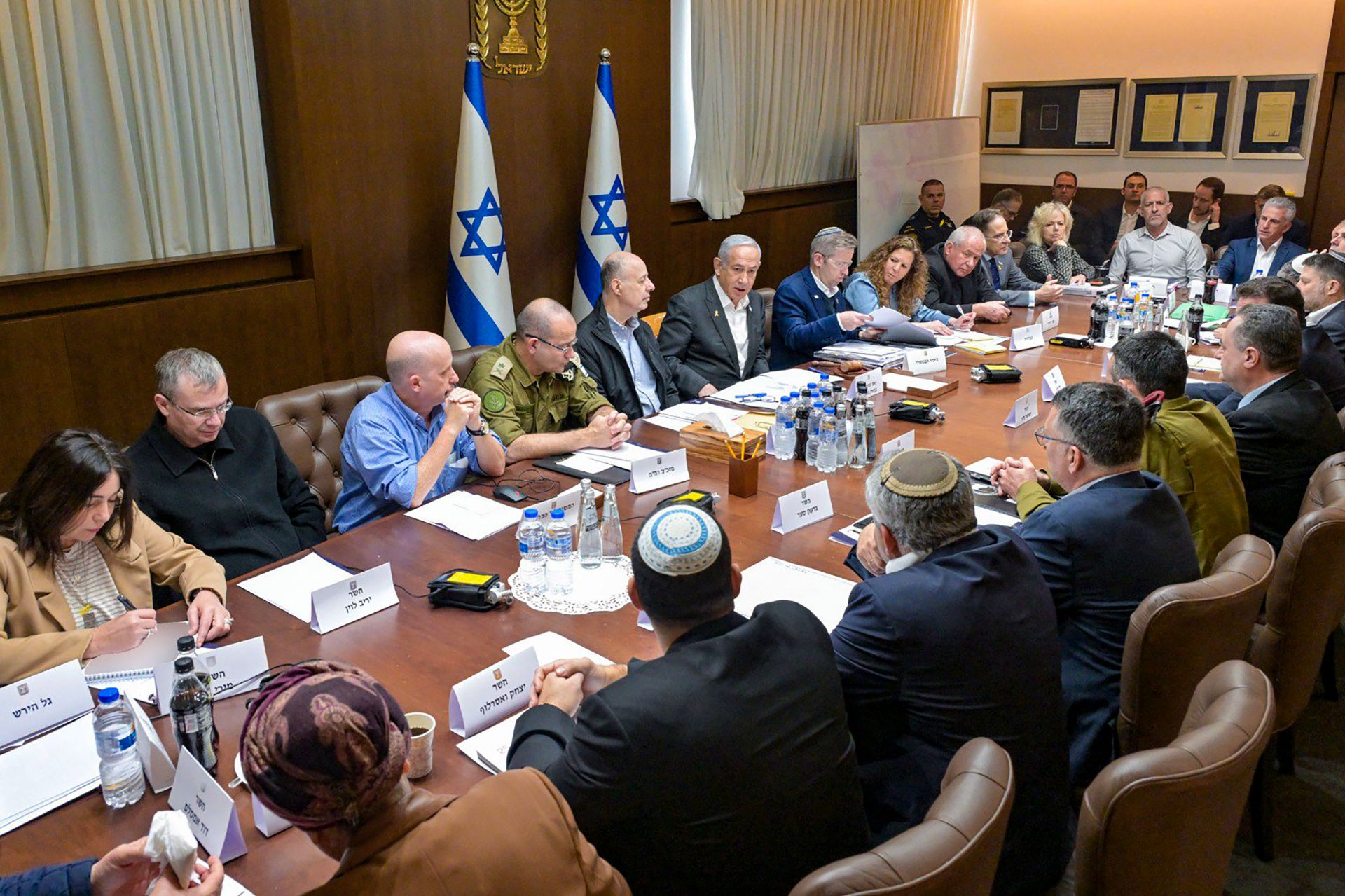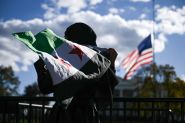- Home
- Middle East
- Gaza: Israel Endorses Ceasefire Agreement With Hamas, Truce Begins On Sunday

©Koby Gideon / GPO / AFP
The Israeli government gave the final green light on Saturday to the ceasefire agreement with Hamas in the Gaza Strip, paving the way for a truce to come into force on Sunday, with the release of the first Israeli hostages in exchange for Palestinian detainees.
Announced on Wednesday by Qatar and the United States, the agreement aims to bring about ‘a definitive end to the war’ that has claimed tens of thousands of lives in the devastated Palestinian territory in over 15 months, according to the Prime Minister of Qatar, Mohammed ben Abdelrahmane Al-Thani.
But while waiting for the truce to begin on Sunday, on the eve of the inauguration of US President-elect Donald Trump on Monday, the Israeli army continued its air strikes on Palestinian territory, killing more than 100 people since Wednesday, according to emergency services.
After receiving the green light from the security cabinet on Friday afternoon, the Council of Ministers approved the plan early on Saturday, despite opposition from far-right ministers.
In a highly unusual move, the cabinet session continued after the start of the Sabbath and the government issued a terse statement at the end of the vote, after 01:00 (23:00 GMT on Friday), announcing the adoption of the plan and the entry into force of the truce from Sunday, without specifying the time.
Hamas has already announced that it has approved the terms of the agreement and is committed to respecting them.
In its recommendation in favour of the project, the Israeli security cabinet had judged, ‘after examining all the political, security and humanitarian aspects of the proposed agreement’, that it supported ‘the achievement of the war objectives’.
In an initial six-week phase, the agreement provides for the release of 33 hostages held in the Gaza Strip since 7 October, in exchange for hundreds of Palestinian prisoners held by Israel.
The definitive end of hostilities will be negotiated during this first phase.
The first hostages should be released on Sunday, the government announced.
According to an Israeli military official, three reception points have been set up on the border with Gaza, from where the hostages, cared for by doctors, will be taken to hospitals.
According to two sources close to Hamas, the first group should consist of three Israeli women.
On Friday, the Israeli authorities designated 95 detainees for release on Sunday, the majority of them women and minors, most of whom were arrested after 7 October, and said they had taken measures to ‘prevent any public demonstration of joy’ when they were released.
Two Franco-Israelis, Ofer Kalderon, 54, and Ohad Yahalomi, 50, are on the list of the first 33 hostages to be released, according to Paris.
Both were abducted from Kibbutz Nir Oz with several of their children, who were released during the first truce in November 2023.
‘This is the moment we've been waiting for (...), I really hope we'll see my grandfather come home, alive and kicking’, Daniel Lifshitz, grandson of 84-year-old Oded Lifshitz, who was abducted from Nir Oz, said in Tel Aviv on Friday.
Even before the truce begins, displaced Palestinians driven out by bombs and fighting are preparing to return home.
‘I'm going to (...) remove the rubble from my house and put my tent on top of it’, says Oum Khalil Bakr, a refugee from Nousseirat.
‘We know it will be cold and that we won't have any blankets to sleep on, but the important thing is to return to our land’, adds this mother of ten children.
Many ‘will find their entire neighbourhoods destroyed’ without any essential services, warns Mohamed Khatib, from Medical Aid for Palestine in Gaza.
‘The suffering will continue (...) but at least there is hope’, he added, while the humanitarian organisations are anticipating considerable obstacles in coming to the aid of the population.
The war, which has caused a level of destruction in Gaza ‘unprecedented in recent history’, according to the UN, was triggered on 7 October 2023 by a bloody attack by Hamas on Israeli soil.
It resulted in the deaths of 1,210 people on the Israeli side, most of them civilians, according to an AFP count based on official Israeli data. Of the 251 people kidnapped, 94 are still being held hostage in Gaza, 34 of them dead according to the army.
At least 46,876 people, most of them civilians, have been killed in the Israeli military campaign of reprisals in Gaza, according to data from the Hamas government's Ministry of Health, deemed reliable by the UN.
The agreement, the fruit of laborious negotiations, was unblocked in the run-up to Donald Trump's return to the White House on Monday.
In addition to the first hostage releases, the first phase includes, according to US President Joe Biden, ‘a total ceasefire’, an Israeli withdrawal from densely populated areas and an increase in humanitarian aid.
The second phase should allow the release of the last hostages, before the third and final phase devoted to the reconstruction of Gaza and the return of the bodies of the hostages who died in captivity.
According to the Prime Minister of Qatar, Mohammed ben Abdelrahmane Al-Thani, the first phase will be used to negotiate the terms of the second phase, namely ‘a definitive end to the war’.
On Friday, Egyptian, Qatari, American and Israeli mediators agreed on ‘all the necessary measures to implement’ the ceasefire agreement, according to the Egyptian public media: they agreed to set up a joint operations room in Cairo to ‘ensure effective coordination’ and compliance with the terms of the truce, and to facilitate the entry of 600 lorries of aid a day, an Egyptian source told Al-Qahera News.
Already undermined by an Israeli blockade imposed since 2007, poverty and unemployment, the besieged Gaza Strip has been ravaged by war and almost all of its 2.4 million inhabitants displaced.
The ceasefire leaves open the political future of Gaza, where Hamas took power in 2007.
The Palestinian Authority, the Islamist movement's rival, is ready to ‘fully assume its responsibilities’ in Gaza, declared its president, Mahmoud Abbas, on Friday in his first statement after the announcement of the agreement.
Considerably weakened, Hamas is still far from being wiped out, contrary to the objective set by Benjamin Netanyahu, according to experts.
With AFP
Read more



Comments